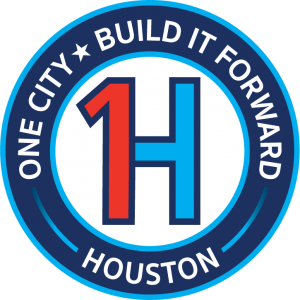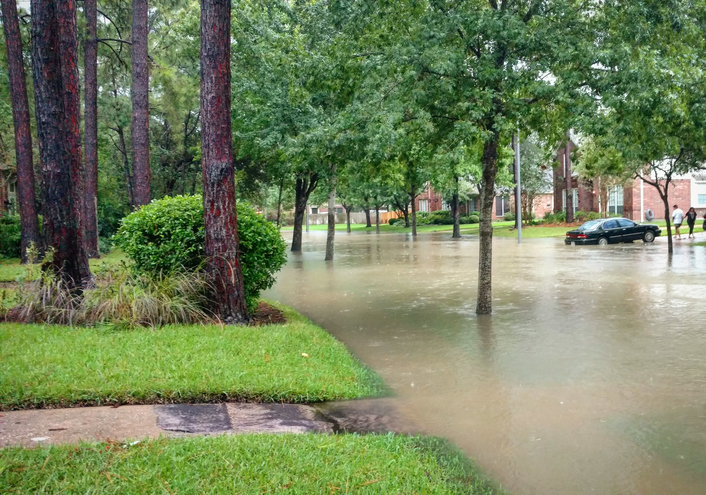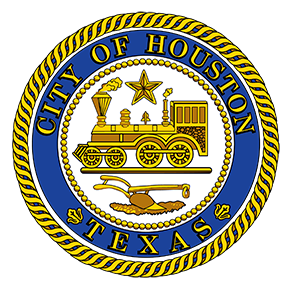 The City of Houston Municipal Courts Department has announced the start of its Fresh Start Spring Amnesty Program. For the next three weeks, certain delinquent cases will be discounted to help citizens save money while resolving outstanding cases.
The City of Houston Municipal Courts Department has announced the start of its Fresh Start Spring Amnesty Program. For the next three weeks, certain delinquent cases will be discounted to help citizens save money while resolving outstanding cases.
“Now is the perfect opportunity to start this spring season with a “Fresh” clean slate. If you have delinquent cases, you are urged to come forward and take advantage of these discounted rates,” said Judge J. Elaine Marshall, director and presiding judge of the Municipal Courts Department. “We are here to assist with Amnesty-eligible cases issued on or before February 1st. Put the past behind you and start fresh and if you have questions, please call us – we are here to help,” Judge Marshall said.
The Amnesty Program began Friday, March 15, at 8 a.m. and ends Saturday, April 6, at 11:59 p.m. Any defendant who voluntarily appears at any Municipal Court location during the amnesty period will be permitted to resolve all of their eligible delinquent cases, including Failure to Appear (FTA) cases, and will not be subject to arrest.
Cases eligible for amnesty include cases that were delinquent prior to Feb. 1, 2019. Only the defendant named in the citation or his or her attorney can participate in the Amnesty Program. Bonding companies, friends, relatives, and spouses cannot make the amnesty request on behalf of someone else.
The Amnesty Program does not apply to a defendant that is in custody, previously adjudicated cases, parking citations, administrative violations, bond forfeitures, or civil cases. Individuals may call the Houston Helpline by dialing 3-1-1 or 713-837-0311 for questions about whether their specific case(s) is amnesty eligible.
Defendants may take advantage of the Amnesty Program by phone, U.S. Mail or in person at any Municipal Court location.
For additional information about Municipal Courts or court cases, visit the website at www.houstontx.gov/courts, or call the Houston Helpline at 3-1-1or 713-837-0311 if outside of Houston.
FREQUENTLY ASKED QUESTIONS
Why are you doing this?
To resolve cases for which all other means of resolution have been unsuccessful and to assist the citizens of Houston with any lingering outstanding Municipal Court issues.
When does Amnesty begin?
The Amnesty Program began Friday, March 15 and ends at Saturday, April 6, 2019 at 11:59 p.m.
What kinds of cases are eligible for Amnesty rates?
Most delinquent traffic and non-traffic citations that were delinquent on or before Feb. 1, 2019 will be eligible for Amnesty discounts. Parking citations and Administrative violations are not eligible for Amnesty. Citizens may call 3-1-1 to find out if they have eligible Amnesty cases.
What do I do if I have a delinquent parking citation?
Parking citations are not eligible for Amnesty. For additional information or assistance regarding paying your parking citation, please call 311 or 713.837.0311.
How can I find out if I have warrants?
Dial Houston’s Helpline at 3-1-1, visit the website at www.houstontx.gov/courts or come in person at any City of Houston Municipal Court location.
What are my options if I find out that I have warrants?
You may pay the fines at the applicable Amnesty rates if your cases qualify. You may also be able to post a bond and have your case(s) reset for a new court date. You always have the option to seek legal advice from an attorney or come to any City of Houston Municipal Court location to speak with a judge.
If I come to court to pay, will I be arrested?
No. The City Houston Municipal Courts will not arrest individuals who visit our courthouse to inquire about their delinquent cases. We encourage everyone to come in voluntarily to resolve their cases.
If I want to pay for my delinquent cases/warrants, what are my payment options?
Payment options are as follows: Phone (3-1-1, 713-837-0311), U.S. Mail, or In-Person at any City of Houston Municipal Court location.
What forms of payment do you accept?
We accept cash, checks, money orders, and American Express, Discover, MasterCard and Visa.
After I pay, how long will it take to clear my driving record through DPS?
The City of Houston Municipal Courts Department will forward the information to DPS upon payment of your case(s). Please allow 5 to 7 business days for your driving record to clear through DPS.

 The City of Houston has taken a critical step forward with the opening of four Housing Resource Centers, one in each quadrant of the city, to use $1.17 billion in federal aid to assist Houstonians whose homes were damaged by Hurricane Harvey.
The City of Houston has taken a critical step forward with the opening of four Housing Resource Centers, one in each quadrant of the city, to use $1.17 billion in federal aid to assist Houstonians whose homes were damaged by Hurricane Harvey.

 Houston City Council Member Dave Martin said he appreciates the comments received by many District E residents, and is happy to announce that Mayor Sylvester Turner has changed the deadline for public input on
Houston City Council Member Dave Martin said he appreciates the comments received by many District E residents, and is happy to announce that Mayor Sylvester Turner has changed the deadline for public input on 



